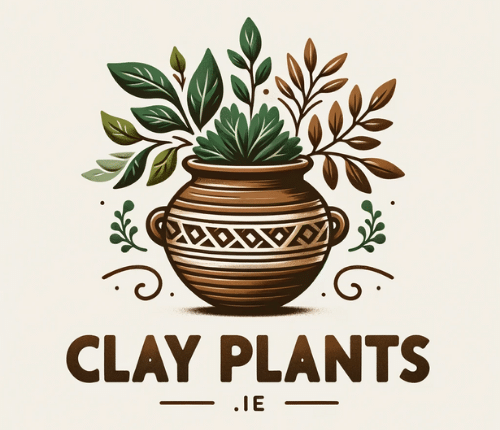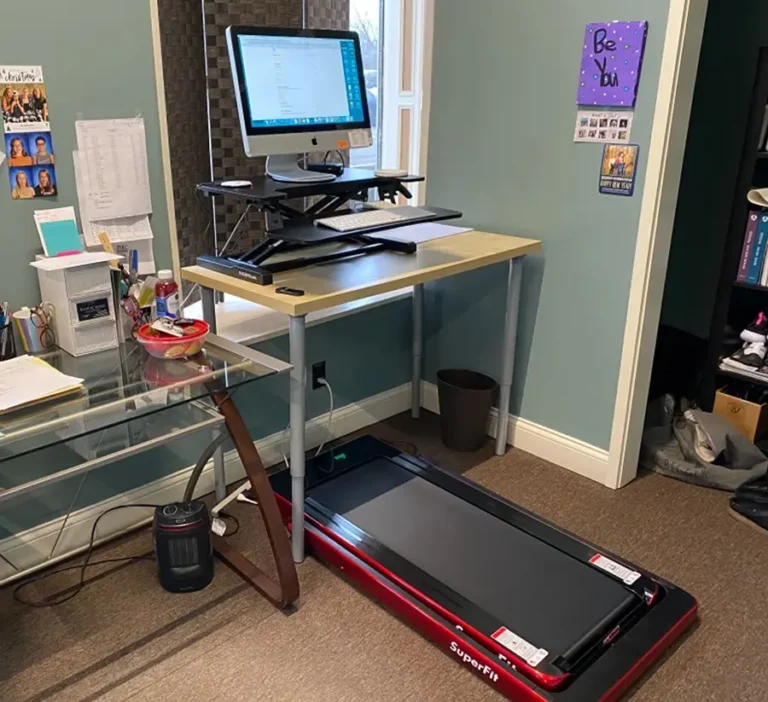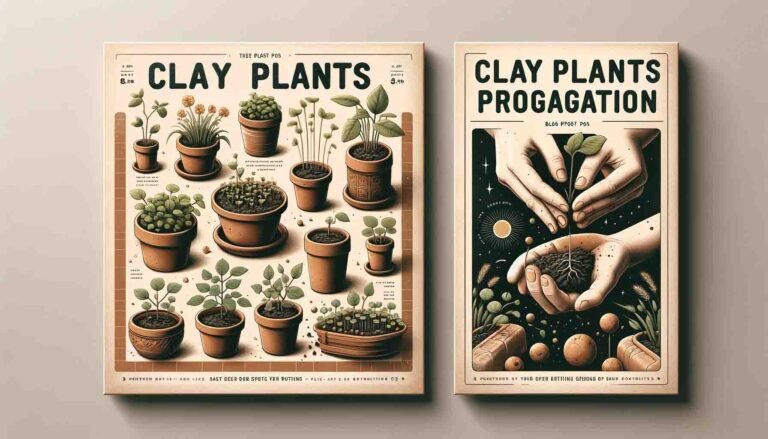Indoor Plants and Walking Fitness
Contemporary Botany Ireland Est. 2009
We will teach you the very basics of owning indoor plants, and designer pots and minding your garden & lawn.
Everything from watering and re-potting to growing & feeding.

LIFESTYLE

Garden

Plants

Lawn
Always made in Ireland
our exclusive range of garden and lawn tools, where every product is a testament to Irish craftsmanship. In our store, we take pride in offering tools that are not only designed for the lush and varied Irish landscapes but are also entirely made in Ireland. Our commitment to local production ensures that each piece is crafted with the utmost care and precision, suitable for Ireland’s unique gardening needs.
40+
Types of gardens
20k
Happy Clients
Green and Active Workspaces: Indoor Plants and Walking Pads in Ireland
Our Mission
Taking care of your garden Dublin, Ireland Since 2009
Our mission at Clay Plants has been clear since our inception in Dublin in 2009: to provide dedicated garden care solutions tailored to the unique landscapes of Ireland. We aim to empower every gardener, from the enthusiastic amateur to the seasoned professional, with the tools, knowledge, and support needed to create and maintain beautiful, thriving outdoor spaces. Our commitment is to quality, sustainability, and the joy of gardening, ensuring that your green spaces not only flourish but also enhance the natural beauty of our local environment.

Transform Your Workspace: Best Indoor Plants and Under Desk Treadmills Ireland
-
The Best Indoor Plants for Small Spaces
The Best Indoor Plants for Small Homes and Offices: Top Choices for Compact Homes Living in a small space doesn’t mean…
-
Indoor Plants Ireland
Top Low-Maintenance Options for Your Home Indoor plants bring life and beauty to any home or office in Ireland. I’ve seen…
-
clay digital gift card
The Ultimate Guide to Digital Gift Cards for Christmas 2024 The holiday season is upon us, and finding the perfect gift…
-
Ficus Rubber Tree & Under Desk Treadmill
Need a Gift for Your Dad? Here’s Our Guide of What to Get Him This Christmas 2024 Finding the perfect Christmas…
-
Plant Propagation
A Guide to Indoor Plant Propagation You’ve fallen down the Instagram houseplant rabbit hole. We’ve all been there. I know I…
-
Repotting Indoor Plants
The Complete Guide to Repotting Indoor Plants Why Should I Repot? The best thing you can do for your plant is…
Creating an indoor vegetable garden is a fulfilling project.
How to Create a Cosy Indoor Garden Space: Tips for Year-Round Enjoyment
Choose plants that suit your space and needs.
Maintain warmth with a good stove for plant health.
Consistent care leads to a thriving indoor garden.
How to Create a Cosy Indoor Garden Space: Tips for Year-Round Enjoyment
Creating a cosy indoor garden space can transform your home into a peaceful retreat. It integrates nature into everyday life and boosts your well-being.
To achieve a comfy indoor garden, you need to focus on a few things. These include adequate lighting, the right choice of plants, and maintaining a warm environment with a good atlantic stove. Whether you have a small apartment or a larger house, there are countless ideas to fit your space and budget.

With the right knowledge and a little creativity, you can cultivate a lush indoor garden that is not only beautiful but functional.
Experiment with different types of plants, such as vibrant succulents or aromatic herbs. These plants can thrive even in compact areas.
Consider combining green foliage with colourful blooms to create a dynamic and inviting atmosphere.
Attention to detail in design, care, and climate control is vital for a thriving garden. Focusing on these elements not only ensures your plants flourish but also enhances the overall aesthetic and comfort of your home.
As you embark on this indoor gardening journey, remember that consistency in nurturing your plants will yield the best results.
Key Takeaways
- Choose plants that suit your space and needs.
- Maintain warmth with a good stove for plant health.
- Consistent care leads to a thriving indoor garden.
Fundamentals of Indoor Gardening
Creating a thriving indoor garden involves choosing the right types, selecting suitable plants, and understanding how to care for them. With the right approach, you can transform any space into a lush, cosy environment.
Understanding Indoor Garden Types
When you start with indoor gardening, it’s important to know about the different types of gardens you can have inside your home.
There are several indoor garden ideas, each with its own benefits.
Windowsill gardens are simple and make good use of natural light. They’re perfect for small spaces and are great for herbs or small houseplants.
For larger indoor gardens, consider shelf gardens. These are excellent when you want to grow a variety of plants and need to control light using grow lights.
Hydroponic systems are another interesting option that allows you to grow plants without soil by using water and nutrients.
Understanding these different indoor garden designs helps you pick the one that fits your space and lifestyle best.
Selecting the Right Plants for Your Space
The choice of plants is crucial for your indoor garden’s success.
Begin with those that are easy to care for, like spider plants or pothos, especially if you are new to gardening.
These houseplants are hardy and adapt well to various light conditions making them ideal for beginners.
Consider the available light and space when selecting indoor plants. Most houseplants need bright, indirect light. If natural light is limited, you might require grow lights.
Choose pots that allow for proper drainage and use a quality potting mix to ensure healthy indoor gardening.
By matching plants with your space, you create a sustainable and beautiful indoor environment.
Designing Your Indoor Garden
Designing an indoor garden involves choosing the right plant types and arranging them in a way that maximises their growth and appeal. Elements such as living walls and creative plant displays can transform your space.
Incorporating Various Plant Types
When designing your indoor garden, diversity is key.
Choose a variety of plants such as succulents, cacti, and trailing vines.
Succulents and cacti require minimal watering, making them perfect for beginners. Trailing vines can add a lush feel to your space.
Consider using terrariums to house these plants, providing a self-contained ecosystem.
Kokedama is another artistic plant form that will add uniqueness to your garden.
When planting, ensure you use the right potting soil tailored to each plant’s need.
Incorporate LED grow lights to simulate sunlight, ensuring your plants receive the light they need to thrive.
Creating a Living Wall
A living wall can turn any vertical space into a green oasis.
Vertical gardens come alive with the right mix of plants. Incorporate plants like ferns, vines, and air plants that easily adapt to vertical growth.
Use a sturdy frame and pockets filled with potting soil suited for vertical planting.
Ensure your wall receives enough light by positioning it near a window or using LED grow lights.
Hanging planters and decorative pots on your wall can add an artistic touch, enhancing the overall aesthetic.
Setting Up a Plant Display
Setting up a plant display involves creatively arranging your chosen plants to highlight their beauty.
Use shelves and tables at different heights for more dimension. Incorporate decorative pots to add style.
Balance your display with a mix of plant heights and colours.
Use hanging planters for trailing vines to create layers in your display.
Grouping plants with similar needs together ensures easier care, particularly those needing similar sunlight and watering.
Keep in mind your space limitations and choose a layout that allows easy access for maintenance, ensuring your indoor garden remains both functional and visually appealing.
Cultivating an Edible Indoor Garden

An edible indoor garden can transform your living space into a resource for fresh herbs and vegetables. It’s about creating a sustainable corner in your home that nurtures health and vitality. Discover the essentials for growing your own herbs and vegetables indoors in the sections below.
Starting a Herb Garden
Growing your own herbs can be both enjoyable and rewarding.
Begin with popular choices like basil, mint, and oregano. These herbs are not only aromatic but also easy to maintain.
For the best results, choose a sunny windowsill where your herbs can get plenty of light. If natural light is limited, consider using LED grow lights.
Use well-draining pots with a saucer underneath. Fill the pots with a light potting mix rich in organic matter.
Water the herbs regularly, keeping the soil moist but not waterlogged. An indoor hydroponic garden is another option to explore if you wish to grow herbs with minimal soil.
Selecting herbs that thrive well together can also encourage better growth. For example, basil and oregano can be planted in the same pot, providing you with a functional and space-efficient indoor herb garden.
Growing Vegetables Indoors
Start by choosing vegetables that adapt well to indoor conditions like lettuce, cherry tomatoes, and radishes. These vegetables require minimal space and grow relatively quickly.
Set up a grow shelf with adjustable lighting if you aim to cultivate multiple plants. Each vegetable has specific light needs, so it’s essential to tailor the environment to suit each plant.
Keep temperatures consistent and free from drafts.
Regularly checking the soil moisture is crucial.
Vegetables like lettuce prefer consistent moisture, while others may need less frequent watering.
Consider incorporating a simple schedule or creating a checklist to track the care for each vegetable variety.
By choosing the right setup and conditions, you can enjoy a productive indoor vegetable garden with a continuous harvest.
Care and Maintenance of Indoor Flora

Caring for indoor plants involves finding the right balance between light and water. Different types of plants require varying levels of attention, with some needing more humidity or specific soil types. Understanding these basics can help keep your plants healthy and thriving.
Managing Light and Water Needs
Each plant has unique light and water requirements.
Snake plants and ZZ plants can tolerate low light, perfect for darker rooms. Meanwhile, a monstera or fiddle leaf fig thrives in bright, indirect light. Place these near a window with filtered sunlight.
It’s crucial to water appropriately.
Aloe vera and cacti require minimal watering and should dry out between sessions.
In contrast, the peace lily prefers consistently moist soil.
Overwatering can lead to root rot, especially in sensitive species like orchids. Always check the topsoil; it should be dry before watering again.
Consider grouping plants with similar needs together to simplify care.
Understanding Plant Care Essentials
Different plant types need different soil types and humidity levels.
Tropical plants, such as the swiss cheese plant, love a humid environment. You can increase humidity by misting leaves or using a pebble tray with water underneath the pot.
Soil is just as vital.
Spider plants, pothos, and many common houseplants do well in standard potting mixes. For orchids, choose a special mix that allows for adequate air circulation around the roots.
Regular fertilisation can boost growth, using a balanced fertiliser every month during the growing season.
Keep an eye out for pests like aphids or spider mites, which can harm indoor flora.
Enhancing Well-being with Indoor Gardens

Creating an indoor garden not only beautifies your living space but also enhances your well-being. By understanding the benefits of green spaces, you can harness their ability to reduce stress, improve air quality, and boost productivity.
Benefits of Green Spaces in Reducing Stress
Having plants indoors can create a peaceful atmosphere, contributing to a more relaxing home environment. A cozy plant-filled sitting room or a small, relaxing nook can serve as a sanctuary from daily stress.
Studies show that spending time in green spaces can significantly lower cortisol levels, a hormone linked to stress. Plants also encourage mindfulness. By caring for them, you practice being in the moment, helping to focus thoughts and promote tranquility.
The calming influence of a plant-filled space can be a natural stress reliever amid the busyness of modern life.
How Plants in Your Home Can Boost Productivity and Air Quality
Incorporating plants into your home or office can also enhance your productivity. Indoor plants have been shown to increase focus and efficiency, making them perfect for an office garden or work-from-home setup. Pairing this with an under desk treadmill can keep you active and further improve your work environment.
Their presence brings about a sense of calm and concentration, ideal for improving work output. Moreover, plants are natural air purifiers. They absorb pollutants and release oxygen, improving the air quality of your indoor environment.
Good air quality supports better respiration and cognitive function, aiding in boosting productivity as well as overall health.
By creating a green space, you foster a lively, healthy, and productive atmosphere.
Frequently Asked Questions

Creating a cosy indoor garden space involves understanding essential elements, choosing the right plants, optimising space, and enhancing the environment with decor and effective lighting. Ensuring plant health and longevity is also crucial.
What are the essential elements for establishing a tranquil indoor garden?
A peaceful indoor garden requires the right balance of light, humidity, and temperature. Use shelves or grow racks to organise your plants efficiently. Consider using grow lights for better control.
Which plants are best suited for creating a serene environment indoors?
To create a calming indoor garden, select plants like ferns, peace lilies, and snake plants. These varieties require low maintenance and can purify the air, adding to the serenity. Learn about more easy-to-grow plants.
How can one maximise space when designing a small indoor garden area?
Maximise space by incorporating vertical gardens and hanging plants. This not only saves floor space but also creates an attractive visual element. You can also utilise DIY projects to make the most of available room.
What are some effective lighting solutions for indoor gardens?
Natural light is ideal, but not always available. Use LED grow lights to mimic sunlight, ensuring all plants receive adequate light. Adjustable lights allow you to control the intensity and angle, providing your plants with optimal conditions and avoiding overcrowding by strategically placing these lighting solutions.
How can the ambiance of an indoor garden be enhanced through decor?
Enhance your indoor garden’s ambiance with natural materials like wood and stone. Incorporate water features or gentle lighting to create a soothing atmosphere. Accessories such as pots and planters in various styles can personalise the space, making it a true reflection of your taste.
What tips can ensure the longevity and health of plants in an indoor garden?
To keep your indoor garden thriving, water your plants consistently, but avoid overwatering.
Fertilise regularly using balanced nutrients.
Keep pests at bay by monitoring plant health and addressing any issues promptly.
Regular pruning also helps plants grow strong and healthy, maintaining an attractive indoor oasis.

Save 20% with
the special coupon

Join Our Email List &
get bonuses

Lifetime guarantee
for all products
Your plants & Garden are in good hands
Subscribe to our newsletter
And get the latest info about Clay plants in Ireland





